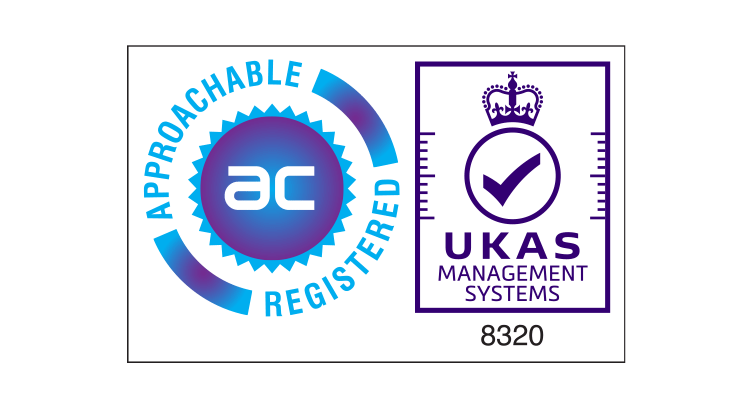Field Service Management for Enterprise
It’s 2023, and the smooth operation of your field service enterprise hinges on two distinct (yet complimentary) frameworks: Field Service Management (FSM) and Enterprise Service Management (ESM). While FSM zeroes in on optimising field operations and meeting customer expectations, ESM takes a more holistic approach. ESM looks at the bigger picture, ensuring that all departments within an enterprise, from HR to IT, operate in harmony.
Field service management software provides the tools and methodologies to achieve this, ensuring that you remain competitive, agile, and customer-centric – even at a large-scale enterprise level. Let’s look at the hows and whys in more detail.
What is Field Service Management?
Field Service Management (FSM) is about coordinating the field operations of your mobile workforce from end to end. In practice, FSM often involves:
- Job management.
- Field data capture
- Safety compliance.
- Dispatch and schedule field service engineers.
- Managing inventory.
- Customer relationship management (CRM)
- Client invoicing.
- Reporting.
Field service management software automates and connects these processes. This ensures that your resources are in the right place at the right time to meet the demands placed on your operation by customers and employees.
What is Enterprise Service Management? (ESM)
Enterprise Service Management (ESM) differs slightly. It applies service-oriented principles and solutions to enterprise-wide operations. While field service management focuses on managing field operations, ESM encompasses your organisation’s broader range of services. You could say that it ensures all business functions operate cohesively and efficiently – a shared goal achieved by FSM software.
What is a field service enterprise?
When we say ‘enterprise’ in the context of field service management (FSM), we’re referring to large-scale organisations. Such organisations often operate across multiple locations, regions, or even countries.
These organisations typically have complex operational structures, a vast number of employees, and a diverse range of services or products. Their field service operations are not just about sending a technician to a job site. You’re coordinating a vast network of technicians, equipment, fleets and more, with the added spice of different time zones and regulatory environments.
What makes Enterprise-Level Field Service Management Unique?
While FSM is crucial for businesses of all sizes, the stakes are higher for enterprises. The challenges are magnified due to their scale and complexity, making the discussion around enterprise field service management not just relevant but vital.
Check out this article for more on improving your field service workflow.
What's Driving Enterprise Field Service Management?
As we have covered in previous blogs, field service management is evolving rather fast. Central to this transformation is the need for enterprise-level field service management solutions brought on by the following shifts:
One | The Consumerisation Effect:
Much like the consumerisation of IT, field service management is experiencing a similar trend. In a post-COVID world, your employees and your customers alike have heightened expectations. These heightened expectations are driven by a desire for consumer-grade experiences. Your customers and employees are used to instant solutions, seamless experiences, and round-the-clock service in their personal lives. When it comes to their service providers or their employers, they expect the same level of service. This can be:
- Flexible scheduling
- Mobile data access
- Real-time updates
- Self-service portals
- Eco-friendly practices
Meeting these challenges is no mean feat. At an enterprise level, organisations like yours must be willing to revamp FSM strategies – and many are, driving this shift forward.
Read More: The Future of Field Service Management
Two | Demand from Diverse Business Units:
It’s not just the IT department that’s recognising the value of advanced FSM. Other departments, from HR to logistics, see FSM’s potential to enhance their operations. They’re actively seeking FSM solutions to streamline their processes, improve service delivery, and boost overall efficiency. This pull from various business units is driving the adoption of field service management at an enterprise level.
Three | Advanced FSM Solutions
Modern field service management software has evolved to be more than just task management systems. They now offer features tailored to enterprise needs, from self-service portals and service catalogues to mobile apps and chat capabilities. These tools are more intuitive and flexible, allowing for customisation to suit the unique needs of different departments within an enterprise.
Four | The Pursuit of Operational Efficiency:
Enterprises are continually seeking ways to enhance their operational efficiency (I’m guessing that is why you’re reading this article, at least). With real-time tracking, automated scheduling, and predictive maintenance, cutting-edge field service platforms can significantly reduce operational costs and improve service delivery.
If you want to read more on this exact topic, check out our blog on The Benefits of Digital Transformation in Field Service.
Adopting Field Service Management Solutions
Enterprises, with their vast operations spanning multiple regions or even countries, face the daunting task of coordinating numerous tasks, technicians, and equipment. Overlooking the value of integrating consumer-world support and service advances is not an option. The sheer scale and complexity can lead to inefficiencies, miscommunications, and missed opportunities. So, what solutions exist?
Field Service Management Tailored for Enterprises
Field service management for enterprises isn’t just about software; it’s about understanding the intricate dance of large-scale operations. Understanding this, our platform integrates seamlessly with your existing back-office systems, ensuring you harness the power of your in-house data. Here’s how we’re revolutionising enterprise field service:
Job Management
Managing service demand is paramount when dealing with a complex operation covering multiple geographies and stakeholders. Job Management Software ensures you’re always in the driver’s seat, from work order inception to completion. With cloud-based interfaces, every step aligns perfectly with service demand, ensuring you’re always ahead, even during unexpected challenges.
Learn More: Job Management Software
Dynamic Workforce Scheduling
In the enterprise realm, planning is everything. Dynamic scheduling ensures that tasks are assigned considering every variable, from technician location to skill level. Plus, with real-time GPS, only the most suited technicians are assigned, ensuring efficiency and reduced environmental impact.
Discover More: Workforce Scheduling
Workforce Rostering
We get it. Your team is vast and diverse. Our solution ensures your workforce structure is modern, flexible, and always aligned with demand. By intelligently rostering your team, you can ensure the right people are in the right place, delivering consistent, high-quality services.
Discover More: Rostering Software
Mobile Working
Equip your field team with cloud-based mobile working capabilities that ensures they have all the information they need right when they need it. From accessing data to leveraging instructional resources, your team is always prepared, even when dealing with the most complex tasks.
Read More: Mobile Workforce Management
Lone Worker Protection
Employee safety is paramount. Cloud-based lone worker protection ensures that every member of your team, especially those working alone, is safeguarded. With 24/7 monitoring and trained professionals at the helm, you can be confident in the well-being of your workforce.
Explore Further: Employee Safety Solutions
Field Service Intelligence
Data is your compass in the vast landscape of enterprise operations. Our solutions transform raw data into actionable field service intelligence, presented in easy-to-understand dashboards. With real-time trends at your fingertips, you’re always equipped to make informed decisions that drive efficiency and innovation.
What is it: Field Service Intelligence
Seamless Integration
For enterprises, integrating a new solution is about more than just software; it’s about synergy. Totalmobile ensures that our platform not only integrates seamlessly with your existing systems but also with other solutions, whether they’re part of our platform or not.
Our platform is built on principles that prioritise:
At the end of the day, our goal is to empower your operations management, ensuring your service delivery process is always evolving, scaling, and innovating.
Learn More: The Field Service Management Platform
Closing Thoughts
In the dynamic landscape of 2023, enterprises face the intricate challenge of managing vast operations across regions, cultures, and regulatory environments.
Totalmobile recognises the unique challenges of enterprises and offers a platform that addresses the immediate needs of field service operations and integrates seamlessly with the broader enterprise ecosystem.
So, if you’re an enterprise looking to harness the power of both FSM and ESM, it’s time to explore what Totalmobile can offer. Dive deeper into our platform and contact our experts today.
















